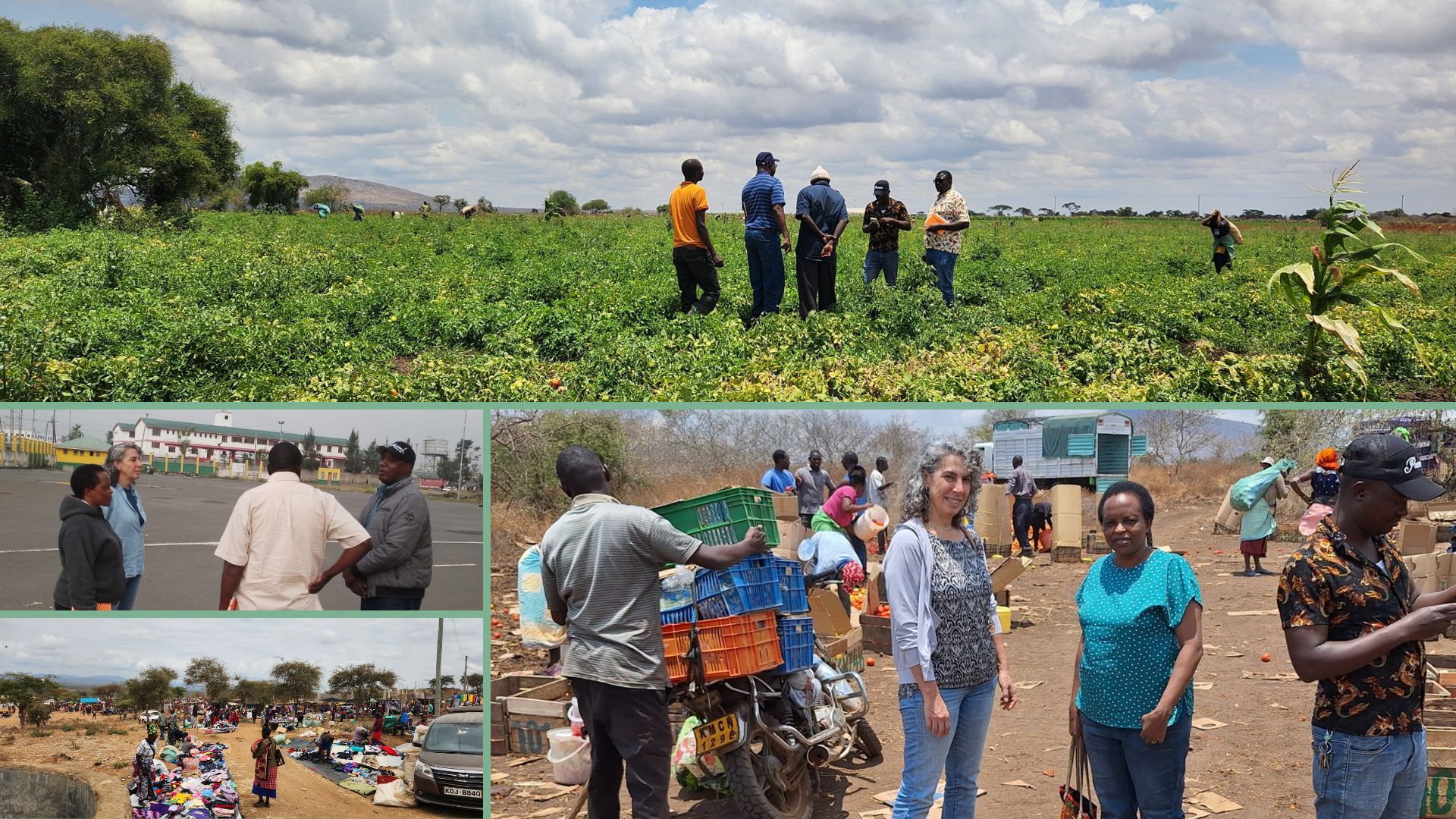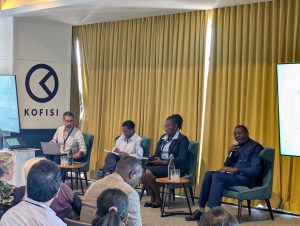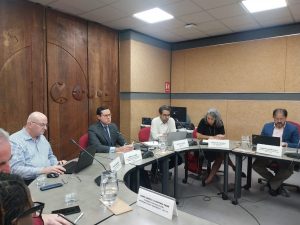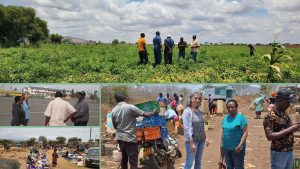Rodrigo Yáñez y Andrés Fuica de Rimisp, junto a Carolina Trivelli del Instituto de Estudios Peruanos (IEP), participaron el pasado...
INCATA Team Conducts Value Chain Studies in India and Kenya
The INCATA project continues to make significant progress in its horticultural and aquaculture value chain research, with recent field visits to India and Kenya yielding valuable insights. Project partners collaborated in rapid reconnaissance activities across both countries.

The INCATA research team consisting of: Sudha Narayanan and Benjamin Belton from the International Food Policy Research Institute (IFPRI), supported by Research Analysts Aditi Gautam, Sabyasachi Puhan, and Manas Ranjan Meher; Saweda Liverpool-Tasie and Thomas Reardon from Michigan State University (MSU); Lilian Kirimi and John Olwande from Tegemeo Institute; and Andrés Fuica from Rimisp – Latin American Center for Rural Development, began their research activities in Odisha, India, in August.
The project partners traveled to Bhubaneswar, the capital of Odisha, to conduct their field research. The rapid reconnaissance phase of the horticultural value chain analysis covered several key locations including Cuttack, Banki, Pathapur, and Jagatsinghpur. Throughout these visits, the team conducted market assessments and interviews with key stakeholders, engaging with wholesale market operators, agricultural traders, supply vendors, and roadside vegetable vendors.
Tomato Value Chain Study in Kenya
Carolina Trivelli, principal researcher at IEP and associate researcher at Rimisp, joined the Tegemeo Institute team in Nairobi, Kenya, in October to conduct rapid reconnaissance for the tomato value chain study. The research activities included exploration of wholesale and retail markets in Nairobi and visits to production zones in the surrounding areas, alongside engagement with value chain participants.
Initial findings from the Kenya visit revealed encouraging insights about the tomato supply chain. The team observed interesting market dynamics, particularly in tomato production zones. Stakeholder interviews indicated widespread economic benefits across different segments of the value chain, where each actor perceived they benefited from it.
The team’s observations highlighted the complex nature of the chain and its significance for local economic development. The research particularly focused on understanding the relationships between small-scale producers and micro, small, and medium enterprises (MSMEs), where a mutually beneficial relationship is believed to exist.
Additional Research Activities in Odisha
The INCATA team conducted another field visit in Odisha in late October. Led by IFPRI’s Benjamin Belton, along with Research Analysts Aditi Gautam, Sabyasachi Puhan, and Bhumika Mishra, the team explored the northern and western districts of Kendujhar, Sundargarh, and Sambalpur.
The research revealed significant technological advancements in agricultural practices across these regions, with farmers adopting new cultivation methods through various institutional arrangements, including private sector and NGO initiatives. The team observed regional variations in farming and trading patterns, with differences in market participation across different communities, influenced by local social structures and cultural practices.
A key finding was the emergence of farmer-traders as prominent value chain actors, who adapt their selling strategies between local markets and farmgate sales based on market conditions and production volumes. The study also mapped out complex product flows, showing how bulk agricultural products move through urban wholesale markets for regional distribution, while locally grown vegetables primarily serve rural markets with limited outflow to urban centers.
The team documented evolving transportation and logistics systems, where small traders utilize shared vehicles for efficient produce movement between markets.
Research Implications
The field visits in Odisha, India, and Nairobi, Kenya, have generated valuable insights for the INCATA project that will inform the development of market and meso studies questionnaires. The project partners have successfully identified key areas and clusters of interest for upcoming surveys, laying a strong foundation for the next phase of research. These discoveries will be instrumental in shaping the continued investigation of agricultural value chains in both regions.
Noticias
Noticias del Proyecto
El rol del “eslabón oculto” en los sistemas agroalimentarios marcó el debate del Seminario Internacional del proyecto INCATA
En el marco del proyecto INCATA, expertos internacionales se reunieron para debatir cómo la articulación entre pequeños productores y las...
Equipo del proyecto INCATA visita India y Kenia para realizar estudios sobre cadenas de valor
El proyecto INCATA continúa avanzando en su investigación sobre cadenas de valor hortícolas y acuícolas, con visitas de campo recientes...
Suscríbete
Nuestras oficinas:

- Chile: Huelén 10. Providencia, Santiago, Región Metropolitana. (+56-2) 2236 4557 | Fax (+56-2) 2236 4558.

- Ecuador: Checoslovaquia E9-95 entre Suiza y Moscú. Edificio Eveliza Plaza. Planta Baja. Quito. (+593-2) 5150144.

- Colombia: Carrera 9 No 72-61 Oficina 303. Bogotá. (+57-1) 2073 850.



